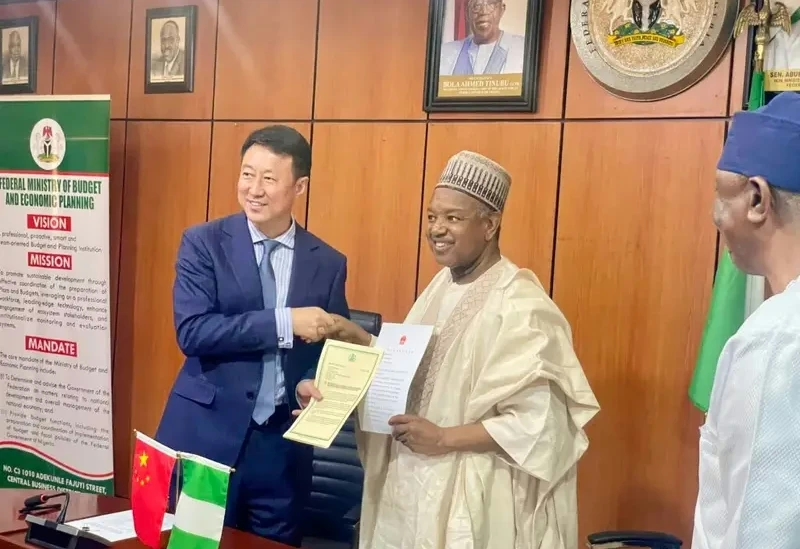Understanding Nigeria’s Commitment to Safe Biotechnology Adoption
The Nigerian government has recently addressed concerns surrounding the introduction of Genetically Modified Organisms (GMOs) and their derivatives, emphasizing that these innovations are designed to enhance food security and nutritional outcomes rather than pose any health risks to the population.
Clarifying Misconceptions About GMOs
Dr. Rose Gidado, head of the Agricultural Biotechnology Department at the National Biotechnology Research and Development Agency (NBRDA), spoke at a recent awareness workshop in Abuja. She highlighted that the widespread belief that GMOs are harmful or toxic is a misconception lacking scientific basis. “As Nigerian scientists and consumers ourselves, we would never jeopardize the health of our people,” she affirmed.
Dr. Gidado further noted that GMOs have been safely utilized for over three decades in more than 45 countries worldwide, underscoring Nigeria’s cautious yet progressive approach to adopting this technology with stringent safety measures in place.
Regulatory Oversight and Safety Protocols
The National Biosafety Management Agency (NBMA) plays a pivotal role in regulating biotechnology practices within Nigeria, ensuring that safety is never compromised. This regulatory body enforces rigorous assessments and compliance standards to protect public health and the environment.
Biotechnology’s Role in Addressing Food Security Challenges
With Nigeria’s arable land diminishing and its population expanding rapidly-currently estimated at over 220 million-biotechnology offers promising solutions to boost agricultural productivity sustainably.
Enhancing Crop Resilience Through Genetic Innovation
Dr. Angarawai Ignatius from the International Crops Research Institute for the Semi-Arid Tropics (ICRISAT-NG) explained that genetic modification techniques improve crop traits by increasing resistance to pests, diseases, and environmental stresses such as drought. These enhancements do not compromise human health but instead contribute to more reliable harvests.
Aligning Research with Global Standards
Prof. Abdullahi Mustapha, director-general of NBRDA, represented by Dr. Oyedele Julius, emphasized that Nigeria’s biotechnology research and regulatory frameworks adhere to international scientific benchmarks. The country has already approved genetically modified maize varieties that are insect-resistant and drought-tolerant, directly addressing climate change and pest-related challenges.
Economic and Nutritional Benefits of Biotechnology
Reducing crop losses through biotechnology translates into a more stable food supply, which helps lower food prices and mitigates nutritional deficiencies among vulnerable populations. This approach supports President Bola Tinubu’s Renewed Hope Agenda, which prioritizes food security and economic revitalization.
Protecting Communities and the Environment
Biotechnology also contributes to environmental sustainability by decreasing the need for chemical pesticides, thereby safeguarding rural communities and agricultural workers from harmful exposure.
Collaborative and Transparent Governance
Nigeria’s biotechnology governance is characterized by transparency and scientific rigor, involving collaboration between national research institutions, biosafety regulators, and international partners to ensure responsible technology deployment.
Ensuring Consumer Confidence and Regulatory Compliance
Mrs. Olubunmi Aribeana, director of Food and Drug Services at the Federal Ministry of Health and Social Welfare, represented by Dr. John Atanda, reiterated the ministry’s dedication to thorough risk assessments. These evaluations cover nutritional content, long-term health effects, and environmental impact before any biotech product receives approval.
She also highlighted mandatory regulatory practices such as product labeling and traceability, which are essential for maintaining consumer trust and transparency in the marketplace.
Addressing Opposition and Promoting Scientific Dialogue
Prof. Emmanuel Kwon-Ndung of the Federal University, Lafia, acknowledged that resistance to GMOs sometimes arises from within the scientific community itself, often influenced by political, ethical, or social factors rather than empirical evidence. He stressed the importance of ongoing education and communication to dispel myths and foster informed public discourse.


















0 Comments